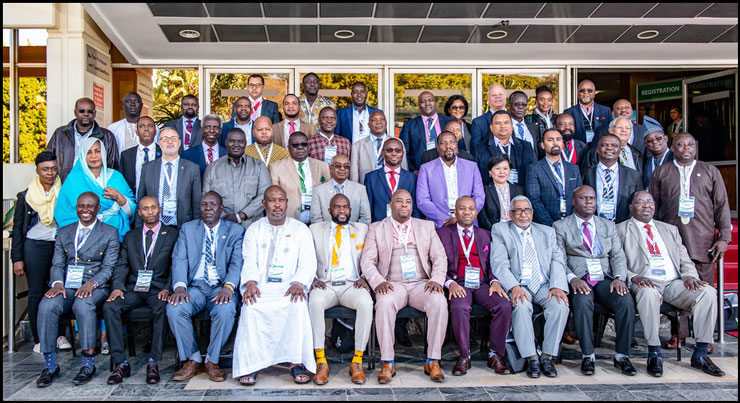27 June 2019
Mayors commit to collective responsibility for realising sustainable African capital cities



Mayors commit to collective responsibility for realising sustainable African capital cities
This year, the ACCSF was co-hosted by ICLEI Africa and the City of Tshwane. The Forum’s theme of Collective responsibility for sustainable African capital cities was explored through several topics, including investment, resource efficiency, climate resilience, youth involvement, cultural identity, novel municipal financing and good governance.
South Africa’s Minister of Cooperative Governance and Traditional Affairs, and former Chairperson of the African Union Commission, Nkosazana Dlamini Zuma presented a keynote address which set a foundation for the forum.
This gathering here is an opportunity to learn from our past, and provide African solutions for African cities, and by Africans themselves,” said the Minister, adding “lets believe in ourselves, and let us believe that we can deliver the cities that will make our people happy.”

The Executive Mayor of the City of Tshwane delivered on the theme of collective responsibility, saying:
“The ACCSF belongs to Africa. It must rotate to give other Mayors the opportunity to host and welcome guests in their own cities. The Forum must grow and be sustainable. After all, it is for the betterment of all Africans.”
“Due to their national and global recognition, African capital cities are uniquely placed to lead other cities towards sustainability, both through sharing their experiences, as well as by advocating for local government voices in international arenas. The collective commitment of the ACCSF and the establishment of the Secretariat presents another valuable step towards the realisation of African urban agendas,”
- says Ms Kobie Brand, Regional Director of ICLEI Africa.
The Forum concluded with the Mayors and their representatives endorsing and adopting the 2019 ACCSF Declaration. Its main commitments included:
- Increasing the role of cities in the realisation and localisation of Agenda 2063 and the Sustainable Development Goals (SDG), in particular SDG 11;
- Establishing a community of practice with the aim to scale urban climate resilience processes and principles;
- Promoting gender equality and development;
- Increasing youth empowerment and involvement; and
- Reaching out to, and supporting, other subnational governments such as intermediate and fast-growing municipalities, as well as small and rural communities.
“As the ACCSF Secretariat, ICLEI Africa looks forward to not only growing the number of participating capital cities, but also to delivering on the promise of ACCSF to demonstrate real and lasting impact in these cities. The Secretariat will do this by establishing a technical support desk, increasing the opportunities for learning exchanges between Mayors throughout the year, and establishing a monitoring and evaluation strategy for the ACCSF to assist Mayors in meeting the sustainability goals of their cities,”
- says Nachi Majoe, ICLEI Africa, Manager: Urban Systems & Strategic Alliances.
ICLEI Africa wishes to congratulate our co-hosts, the City of Tshwane, for a successful and productive forum, as well as the participating capital cities for their continued commitment to sustainable urban development

It’s DAY TWO of #ACCSF2019: the premier
#sustainability


